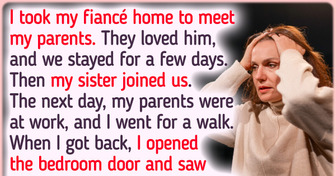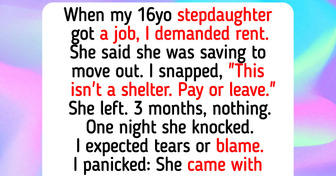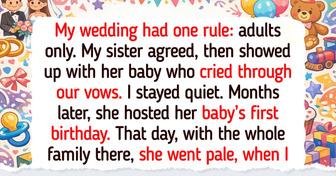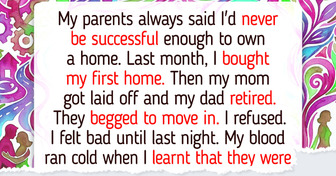10 Real Stories Too Dramatic for Daytime TV

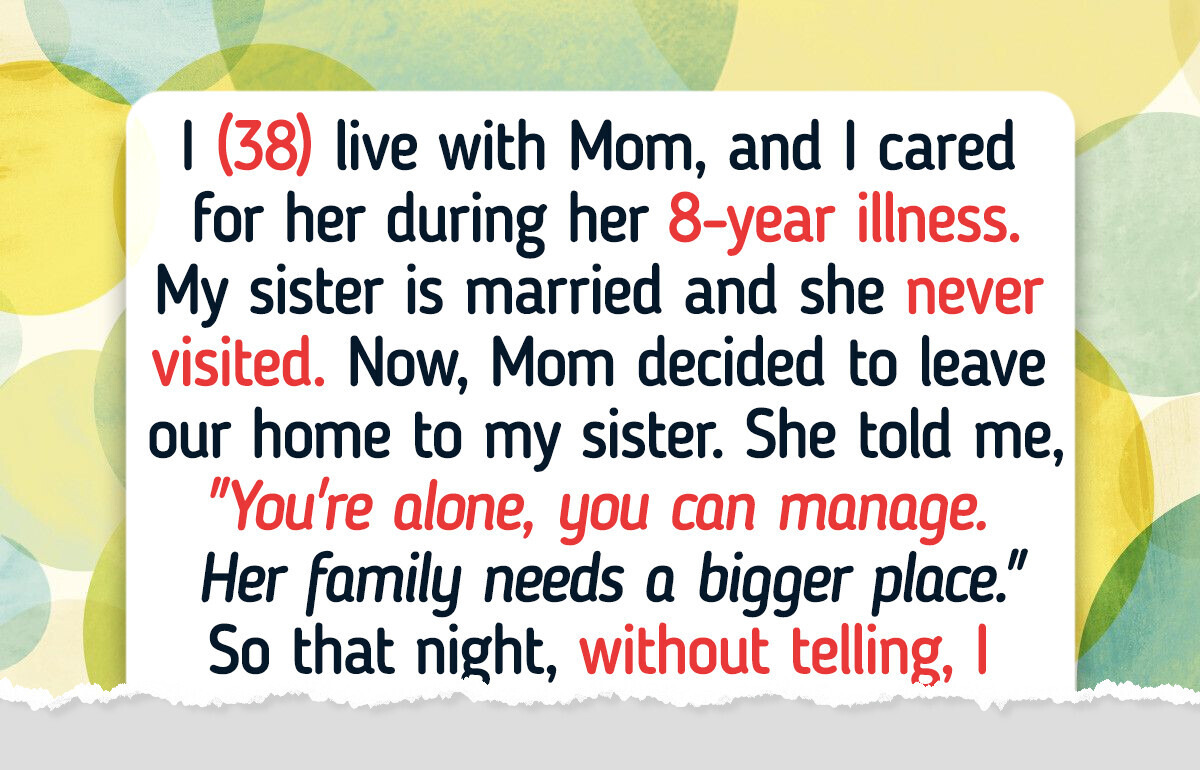
Family can be our greatest source of love—but sometimes, it’s also where we face the deepest hurt. Many people struggle when caring for aging parents, especially when siblings don’t share the load. One child may do all the work, while others stay distant until it’s time to claim rewards. Recently, we received a letter from a reader facing this very issue—and how she’s fighting to keep the home she believes she truly deserves.
Dear Bright Side,
I (38) live with Mom, and I cared for her during her 8-year illness. She’s doing better now, but she still goes through a lot of therapy and medication, and relies solely on me as her caregiver.
My sister (35) is married, and she never visited. Now, Mom has decided to leave our home to my sister. She told me, “You’re alone, you can manage. Her family needs a bigger place.”
But the bigger bombshell came when she said to me, “You never suggested babysitting your sister’s 3 kids, that’s why she could never visit us. So, the blame is on you!”
So that night, without telling anyone, I packed my things and left the house. I know that Mom needs me every day and cannot manage without me.
The next day, she called, begging me to come back. But I told her that she has to leave the house to me, otherwise she can forget me.
She called me heartless and manipulative, and explained how “disappointed” she is in me. I stood my ground and hung up on her.
Am I being really selfish, or am I defending my rights?
Sally

Hi Sally! Thank you for sharing your story with us. We’ve prepared some guidance to support you as you work through this delicate situation.
Given that your mother is still dependent on you for daily care, yet has decided to give the house to your sister (who was largely absent), it’s important to have an open discussion with neutral support. A family therapist or mediator—especially one who specializes in elder care dynamics—can help your mother truly understand the emotional and practical weight of her decisions.
This setting can also give you space to express how her words (“You never suggested to babysit...”) shifted blame unfairly. It may lead her to reconsider both the inheritance and the emotional harm caused.
You’ve acted as a full-time caregiver for eight years, which in many places can legally or ethically be considered when distributing property. A lawyer who understands elder law or family inheritance issues could help you explore whether any “caregiver agreements”, verbal promises, or shared residency rights apply in your region.
If nothing else, understanding your position could strengthen your case if you reopen the discussion with your mother or your sister.
You don’t have to return to the home to continue being involved in your mother’s life. If she’s begging you to come back but still refuses to acknowledge the unfairness, try maintaining contact only through calls or visits—on your terms.
This gives her a chance to feel your absence while keeping the door open. It may lead to a change of heart, especially if she realizes how hard daily life becomes without your presence. Just don’t jump back into full caregiving until trust is rebuilt or terms are renegotiated.
Your sister’s complete absence from caregiving—and your mother’s excuse that you didn’t volunteer to babysit—is a hurtful distortion of reality. Whether or not you plan to confront your sister, writing a direct, honest letter about how her lack of involvement has impacted you can help clarify your feelings.
If you do decide to send it, do it without anger—focus on the emotional and logistical consequences of her absence and the injustice of the current situation. It may be the only way to spark self-awareness or accountability on her end.
Lynn also recently shared her story with us. Her husband was planning a family trip to Disneyland, but he refused to pay for her 10-year-old daughter’s ticket, saying it was her father’s responsibility. Here’s what happened next.




